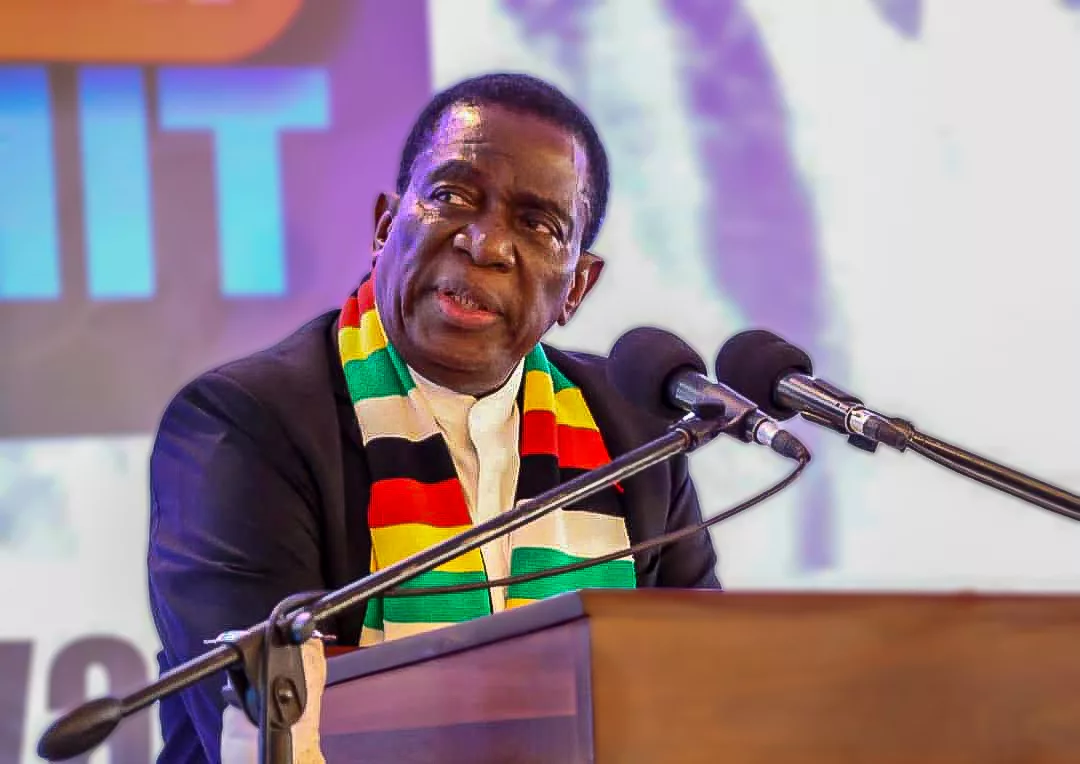|
Getting your Trinity Audio player ready...
|
President Emmerson Mnangagwa has urged stakeholders in the education sector to consistently re-examine and appropriately equip learners with the skills to drive continental modernisation and industrialisation for a higher quality of life for the people of the African continent.
The President made the call yesterday while officially opening the Third Africa Education Summit in the resort City of Victoria Falls in Zimbabwe.
“It is my great honour and privilege to welcome you all to this 3rd Africa Education Summit, being hosted here in the resort City of Victoria Falls, Zimbabwe. We celebrate the increasing literacy rates and access to higher education, as well as a rise of technological hubs, among other milestone achievements, in Africa’s education sector. However, it is critically important that we consistently re-examine whether we are appropriately equipping learners with the skills to drive continental modernisation and industrialisation for a higher quality of life for the peoples of the Continent.
“Following the 1st and 2nd Summits held in Rwanda and Nottingham, respectively, this gathering being held under the theme, ‘Translating our Educational Advancement to Continental Development: A Strategic Approach,’ is timely and resonates with our collective aspirations to go beyond policies and reforms.
He said discussions during the Summit must enable convergence towards scaling up transformative strategies that drive education and developmental progress across Africa. Participants were urged to innovate, think outside the box and promote impactful best practices to up-scale resilient systems that shape the future of the African Continent through education.
They were urged build on the solid foundation set out at previous engagements under this initiative to leap forward the education systems.
He noted that the quality of education varies widely, with many institutions lacking adequate resources and trained educators. Such gaps and disparities hinder the ability to harness the full potential of the youth to translate educational advancements into tangible development outcomes.
Zimbabwe increased school infrastructure across the country, especially in new settlements has ensured that learners do not walk more than 5 kilometres to access educational facilities.
To reduce school absenteeism due to limited food, an all-encompassing School Feeding Programme is ongoing, covering both rural and urban schools in vulnerable communities.
“We must become a Continent that can produce and feed itself. Regrettably, limited access to energy hinders prospects for most African learners, especially those in rural communities. Hence, investments in clean energy, along with modern school infrastructure, must now be deemed a dual necessity.
“This is more urgent given the centrality of energy access for the deployment of ICTs, e-learning, innovation and overall digital transformation industrialisation of Africa.”
To this end, he said further support for Science, Technology, Engineering, and Mathematics (STEM) education, alongside vocational training and digital literacy, enablers must be prioritised.
“Our students should exit education institutions with skills that empower them to create jobs, establish viable industries, and solve societal challenges. Therefore, the need to enhance collaboration, scale up synergies and strengthen partnerships cannot be over-emphasised. Under the Second Republic, my Administration has increased support for the provision of modern teaching and learning materials. These are having a positive impact on learning outcomes and resulting in dynamic teaching-learning processes that benefit both learners and educators.”
The digital divide remains a significant barrier to educational access across the continent. Leveraging technology to bridge the educational divide will, in the main, enable even the most remote communities to access quality learning. Governments must increase support for infrastructure to broaden digital access and literacy, particularly for students and teachers.
E-learning platforms, smart classrooms, and Artificial intelligence-driven learning tools should no longer be luxuries but day-to-day teaching and learning necessities.
Meanwhile, resource centres and libraries which are e-enabled are being promoted throughout Zimbabwe, with the setting up of Community Information Centres as well as the deployment of Mobile Information Buses.
President Mnangagwa challenged scholars and authors from the African continent to participate in generating reading materials and literature for the benefit of learners.
He said education reforms in Zimbabwe have seen the review of school curricula to create an ecosystem that not only imparts knowledge but also fosters critical thinking, creativity and problem-solving abilities.
These reforms have a bias towards the realisation of results based on both tangible and non-tangible indigenous endowments for social and economic transformation.
He said increased investment in research and development are key cogs for the accelerated modernisation and industrialisation of Africa.
Zimbabwe’s national development mantra ‘leaving no one and no place behind’ is ensuring that education is accessible to all, regardless of socio-economic background, gender or disability. Women and girls, in particular, must be empowered to excel in all fields, breaking barriers and contributing meaningfully to our continent’s progress.
“Let us leave this gathering with actionable policies, measurable targets and a renewed commitment to making education the engine of Africa’s development, modernisation and industrialisation.
“I challenge Ministers responsible for Education, along with education stakeholders and development partners, to fully harness insights from this Summit and translate our advancements in education into appropriate knowledge systems.






